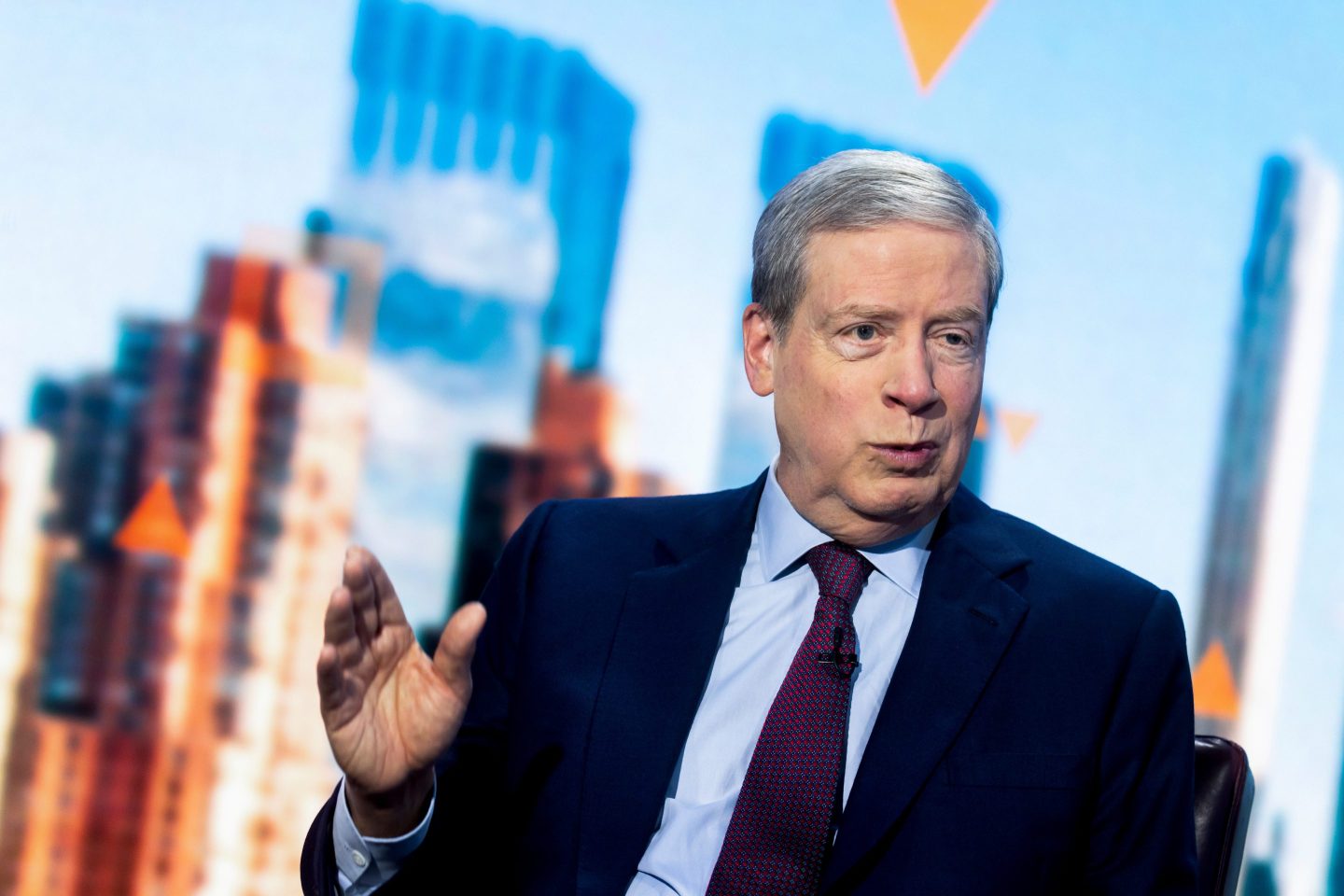
Billionaire hedge fund manager Stanley Druckenmiller isn’t a fan of tariffs, but he sees them as the “lesser of two evils” compared to higher income taxes, as Washington scrambles to fund ballooning deficits.
“As you know, we have a big fiscal problem — mandatory spending plus interest expenses [are] literally 100% of revenues right now,” Druckenmiller told CNBC in an interview earlier this year.
The clip has resurfaced on social media following President Trump’s “Liberation Day” tariff announcement.
With few viable options, Druckenmiller said, “our main choices are an income tax and a consumption tax-like tariff,” and he favors the latter — “the lesser of the two evils.”
The catch is Druckenmiller was referring specifically to a universal 10% tariff proposed by the Trump administration, not the sweeping measures unveiled last week.
“I do not support tariffs exceeding 10%, which I abundantly made clear in the interview,” he posted Sunday on social media.
Like others, Druckenmiller is struggling to justify the administration’s so-called reciprocal tariffs, which range from 10% to an eye-popping 50%.
Many economists warn these duties could backfire by driving up consumer prices and inviting retaliation from trade partners.
Markets seem to agree, with the stock market in the worst sell-off since the early days of Covid.
Circuit-breaking bear market
Since President Trump’s inauguration, the U.S. stock market has lost $9.6 trillion in value. Over half of those losses came on April 2–3, shortly after the tariff announcement.
The S&P 500 is down nearly 14% in 2025 and has fallen 17.5% from its peak. The Dow has shed 10% year-to-date and is down 15% from its all-time high.
The sell-off was so aggressive that brokerages have sent out circuit-breaker warnings to remind clients of thresholds that would automatically halt trading.
CME Group said it would pause futures trading for 15 minutes if the market drops 7% or 13%. A 20% decline would stop trading for the day.
The last time these triggers were hit was during the Covid crash in March 2020, when circuit breakers halted trading on four separate days.
Your email address will not be published. Required fields are markedmarked